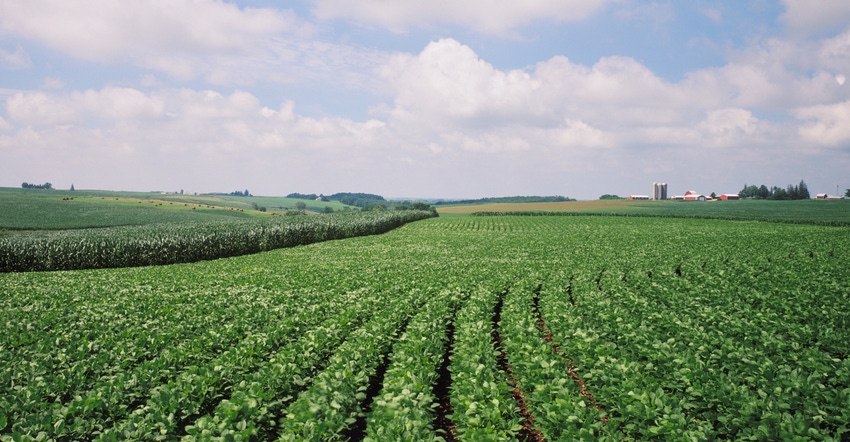February 24, 2022

For 2022, the biggest news out of central Ohio is Intel’s massive investment in two semiconductor factories in western Licking County. The factories on their own will remove thousands of farm acres from production. More acres will be lost in the coming years because of commercial or residential development to support the factories.
Landowners in these kinds of situations are set to receive a massive price for their properties, with developers likely to pay far above fair market value. Concerns about capital gains taxes, plus a desire to keep farming, may push landowners to pursue 1031 like-kind exchanges.
First, what is a capital gain? The IRS defines a capital gain as income that results from the sale of an asset above its adjusted basis. The tax basis for the property is what you paid for it. Generally speaking, the tax basis can also be “stepped up” or adjusted when the asset is sold, or when the asset is inherited. The gains can be short-term or long-term depending on the time of ownership.
For example, if Bob paid $2,000 per acre for a 100-acre farm in 1980, and sells his farm to a developer for $50,000 per acre in 2022, Bob has incurred a gain of $48,000 per acre — $48,000 per acre in gains would result in a very large tax bill, so Bob wants to explore a 1031 exchange.
Coming from Section 1031 of the Internal Revenue Code, a like-kind exchange allows a landowner to defer the capital gains from the sale of one property if the sale proceeds are immediately reinvested in another property of the same type or like-kind.
So, if Bob uses the $5 million proceeds from his original sale to buy $5 million of farmland elsewhere, the capital gains from the first sale are deferred because he acquired property of the same type.
Tight rules
The rules surrounding like-kind exchanges are strict and complicated. To start, an exchanger must find property of the same type to acquire. Funds from the initial sale must be held by a qualified intermediary until the second sale is completed. If any part of the sale proceeds pass to the landowner, the exchange is void.
Also, the timeline for both deals is very tight. Both transactions must be completed in a matter of months, and deadlines are strictly enforced. Essentially, a landowner needs to have the new property identified before entering the first deal.
For residential homeowners, capital gains are less of a concern. The first $250,000 for single filers and $500,000 for married joint filers are excluded from capital gains. Also, if a government body, including a utility, is trying to acquire a purchase or easement interest in your farm, a 1033 exchange may be right for you.
Section 1033 of the Internal Revenue Code allows you to defer the capital gains on a sale or easement deal to acquire other land, as long as the sale or easement occurred under threat of eminent domain.
Like-kind exchanges have created a specialized group of professionals to handle these complex deals. If you are contemplating an exchange, engage your legal and tax professionals as soon as possible to ensure the tax deferment is achieved.
Conklin is an attorney and new owner of Wright & Moore Law Co. LPA.
You May Also Like




